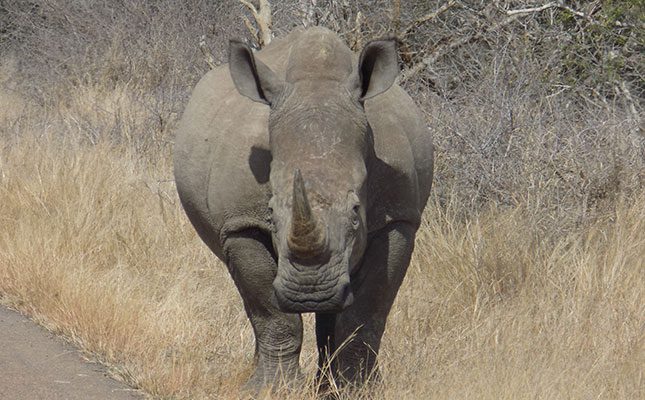
Photo: Annelie Coleman
This followed the arrest of a 40-year-old man after large-scale rhino horn theft in North West. The suspect was expected to appear in the Mmabatho Magistrate’s Court on 3 July following an incident in North West in which a rhino stockpile had been hit by robbers who stole 51 horns. He was facing a charge of business burglary.
According to a statement by the Hawks, its serious organised crime investigation unit assisted by the Rustenburg Public Order Policing and Crime Intelligence, arrested the suspect in Boitekong in Rustenburg. Five vehicles, believed to have been used in the commission of the crime, were also confiscated.
Jones told Farmer’s Weekly that all indications were that the incident in North West was an inside job and was symptomatic of the fight against rhino poaching. The horns were stolen at the end of June from a North West Parks and Tourism Board facility in Mahikeng. The Hawks were continuing with the investigation, according to Hawks spokesperson Lieutenant Colonel Tinyiko Mathebula.
Jones said that despite the ongoing efforts on international and national levels to reduce the illegal trade in rhino horn, very little, if any, success had been achieved.
“Efforts to reduce demand and to increase levels of law enforcement did not have any marked effect on the matter. People will still go through extreme lengths to obtain rhino horn. It is clear that law enforcement does not work,” he said.
Jones added the only solution to protect rhinos against criminals was to legalise the trade in horns. He said that in South Africa, there were 80t of rhino horn currently stockpiled. Rhino horn was a renewable resource that could regularly and safely be harvested without any ill effect on the animals, with the legalisation of the trade of rhino horn expected to dampen the need for poaching.
“The legalisation is of utmost importance in order to collapse the illegal trade. Of the original 34 countries in Africa where rhinos naturally occurred, only 10 are left. It’s time that common sense overruled the emotional reactions about the legal trade in rhino horn,” he added.











